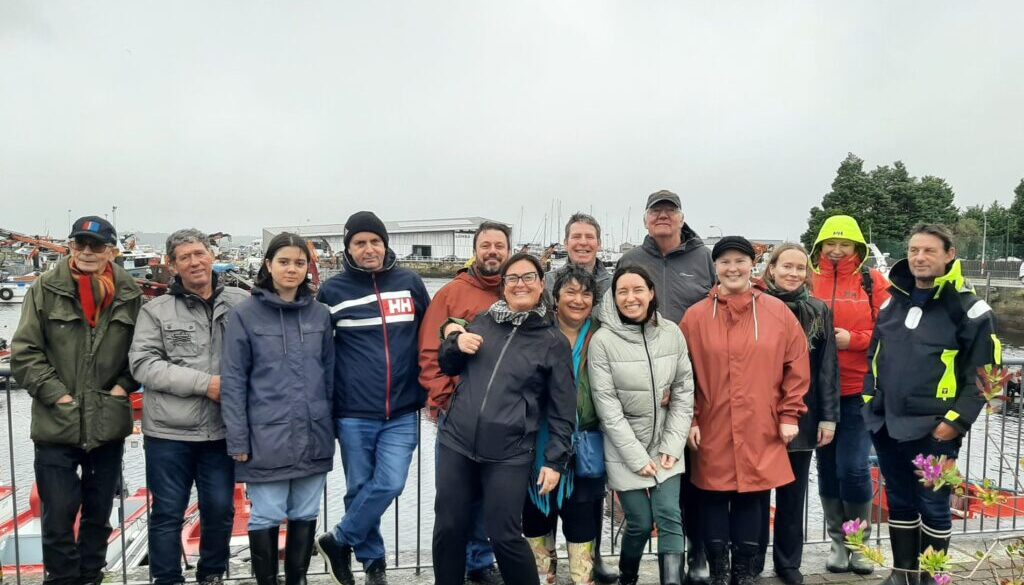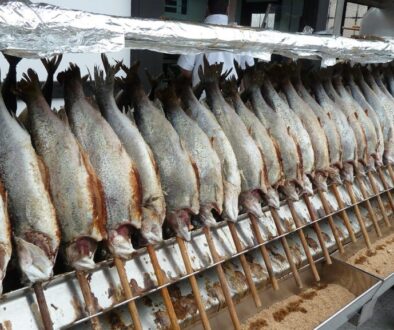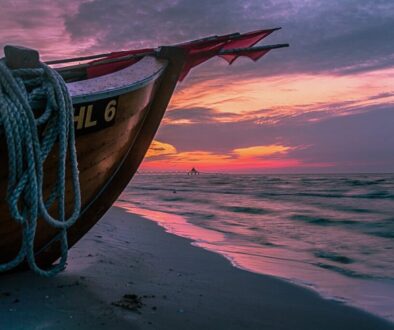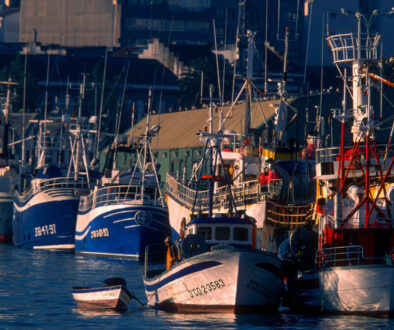Bruxelles, 21. studenog 2023.
Danas, u utorak, 21. studenog, je Svjetski dan ribarstva, dvadeset i peti put od njegovog osnutka 1997. godine. Kako bi obilježili ovaj događaj i proslavili Međunarodnu godinu obrtničkog ribarstva i akvakulture (IYAFA) 2022., članovi LIFE-a iz 8 zemalja od Baltika do Mediterana sastali su se prošli tjedan u Galiciji kako bi raspravljali i zamislili kakva bi trebala biti pravedna budućnost malog ribarstva u Europi.
Sastanak, koji se održao u Vilanova de Arousa, Galicija, Španjolska, od 13. do 16. studenog, organizirali su Međunarodni kolektiv za podršku ribarima (ICSF), LIFE i udruga “Mulleres Salgadas (MS)”. MS je bio domaćin događaja i organizirao posjet kako bi se upoznao sa svojim članicama – ženama sakupljačicama školjaka (mariscadoras) iz Ria de Arousa – te kako bi razumio i cijenio njihovu profesiju.
Ovo je četvrti i posljednji događaj u nizu koje organizira ICSF u čast Međunarodne godine obrtničkog ribarstva i akvakulture (IYAFA) 2022. Za više informacija pogledajte: https://www.icsf.net/
Budućnost je izuzetno neizvjesna za ribarstvo općenito, a posebno za malo ribarstvo. Stoga je sastanak sebi postavio zadatak da pronađe rješenja, razvije pozitivnu priču za malo ribarstvo i zamisli kako bi izgledala pravedna budućnost za ovaj podsektor. Među 45 sudionika iz 16 zemalja okupljenih na sastanku bili su ribari i ribarke te njihovi predstavnici, organizacije za podršku, znanstvenici, akademici i druge zainteresirane strane.
Tim Equal Sea Laba sa Sveučilišta u Santiagu započeo je sastanak raspravama o tome kako promijeniti trenutni narativ koji uokviruje malo ribarstvo (MPF) u Europi. Prema tom narativu, PSF su izuzetci, marginalizirani u procesima donošenja odluka i u aranžmanima pristupa ribolovnim mogućnostima i tržištima. Koncentracija bogatstva, kontrole i utjecaja također je potkopala demokraciju u upravljanju ribarstvom i održivosti ribarstva te stvorila nepravedne i ranjive prehrambene sustave i lance opskrbe. Potreban je novi pristup, temeljen na uključivom i održivom socioekonomskom i ekološkom razvoju, koji daje prioritet dobrobiti obalnih zajednica i zdravlju vodenih ekosustava.
Nakon toga, LIFE se bavio upravljanjem u ribarstvu i time kako je potreban diferencirani pristup za upravljanje pristupom SSF resursima, za upravljanje ribolovnim aktivnostima SSF-a na moru i za upravljanje pristupom SSF-a tržištima na pravedan način. Predstavljeni su slučajevi dobre prakse iz cijele Europe. Zatim su sudionici raspravljali o tome kako ojačati kapacitete SSF-a i organizacija za podršku te kakve saveze treba izgraditi. Završna sesija organizirana je kao panel rasprava kako bi se razmislilo o ranijim raspravama iz perspektive žena u ribarstvu. Ova završna panel rasprava uključivala je članove i članice LIFE-a i Aktee, europske mreže organizacija žena ribarki, kao i ribarke i znanstvenike.
Na sastanku je zaključeno da izgradnja nove naracije i pravedne budućnosti za SSF u Europi mora uključivati:
- Prepoznavanje malog ribarskog sektora kao temelja živahnih vodnih gospodarstava, podržanih pravednim, uključivim i transparentnim politikama s regeneracijom ekosustava u središtu, kao i osiguranje osnovnih ljudskih prava ribara na pristup resursima koji održavaju njihovu egzistenciju.
- Sheme zajedničkog upravljanja temeljene na zajedničkoj odgovornosti koje utkaju upravljanje okolišem u društveno tkivo i dinamičnu kulturu zajednica.
- Održiva poduzeća SSF-a i dostojanstven rad, poticanje generacijske obnove, rodne ravnopravnosti i uključivosti, potkrijepljeno pravednim i participativnim procesima.
- Prepoznavanje tradicionalnog, naslijeđenog i iskustvenog znanja malih ribara i radnika u ribarstvu, uključujući žene i autohtone narode, kao preduvjeta za donošenje informiranih odluka o upravljanju ribarstvom.
- Tržišta koja odražavaju pravu vrijednost održive proizvodnje hrane u malim razmjerima i koja pružaju poštene nagrade duž cijelog lanca vrijednosti, od mreže do tanjura.
- Prikupljanje i korištenje informacija i inovacija za podršku našem cilju, za unapređenje našeg prirodnog svijeta za sve, umjesto ograničavanja njegove upotrebe za nekolicinu, na temelju suvereniteta podataka, pristupačne tehnologije i digitalne pismenosti.
- Priprema zajednica malog i srednjeg podzemlja za buduće učinke klimatskih promjena i njihova otpornost na prirodne i ljudske katastrofe
Pročitajte cijelu izjavu i poziv na akciju sastavljen kao rezultat događaja.
Pročitajte izvješće s radionice.
Za daljnje informacije:
Sivaja Nair, voditeljica programa, ICSF sivaja.icsf@gmail.com
Sandra Amezaga Menendez, tajnica, Udruga Mulleres Salgadas, amezagasandra@gmail.com
Marta Cavallé, izvršna tajnica, LIFE, izvršna.tajnica@lifeplatform.eu




